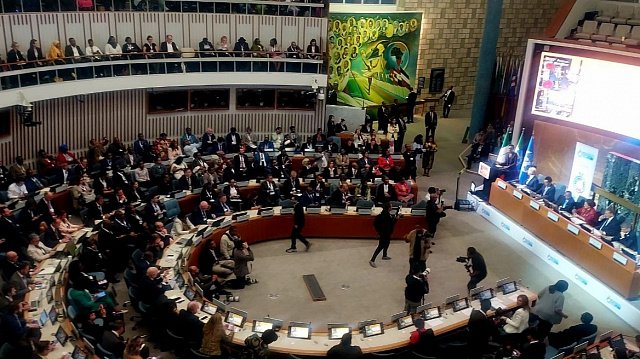29.07.25
15:00
African leaders call for coordinated action to transform food systems
UN Food Systems Summit in Addis Ababa focuses on resilience, affordability, and inclusive development
African and global leaders convened in Ethiopia’s capital for the UN Food Systems Summit +4 Stocktake (UNFSS+4). The three-day summit was attended by heads of state, policymakers, and international organisations. This is reported by
ENA, a partner of TV BRICS.
Ethiopian Prime Minister Abiy Ahmed emphasised the importance of food systems as more than agricultural structures, stating they “shape our health, economies, environment, and future.” He reiterated Ethiopia’s commitment to food self-sufficiency through local production, reduced import reliance, and a comprehensive roadmap that aligns with broader macroeconomic reforms. The strategy includes over 700 interventions aimed at improving land use, rural finance, and agricultural development.

Other African leaders echoed similar priorities. Ugandan Vice President Jessica Alupo described food systems transformation as essential for sustainable development and regional stability. She highlighted Uganda’s institutional frameworks and school feeding initiatives, which link nutrition, education, and agriculture. She urged stronger international collaboration and financing to expand access to safe and nutritious food.

Nigerian Vice President Kashim Shettima underlined the role of inclusive economic growth in building sustainable food systems, noting that structural reforms and trade access are key to achieving these goals.
The summit also saw the launch of the 2025 *State of Food Security and Nutrition in the World (SOFI)* report. Produced by FAO, IFAD, UNICEF, WFP, and WHO, the report highlighted the impact of food price inflation on access to healthy diets, particularly among low-income groups. It assessed progress towards the Sustainable Development Goals (SDG 2.1 and 2.2), which aim to end hunger and all forms of malnutrition by 2030.
UN Secretary-General Antonio Guterres, in a message to participants, urged countries to adopt climate-smart food policies and increase private sector involvement to reduce dependency on food imports. He noted that over 100 countries had taken steps to align food systems with climate and biodiversity goals since the first summit in 2021.
Guterres advocated for greater investment in food systems to meet the UN’s 17 Sustainable Development Goals, and called for the use of new technologies, such as artificial intelligence, to optimise value chains and reduce food waste.
Photo:
ENA
Back


